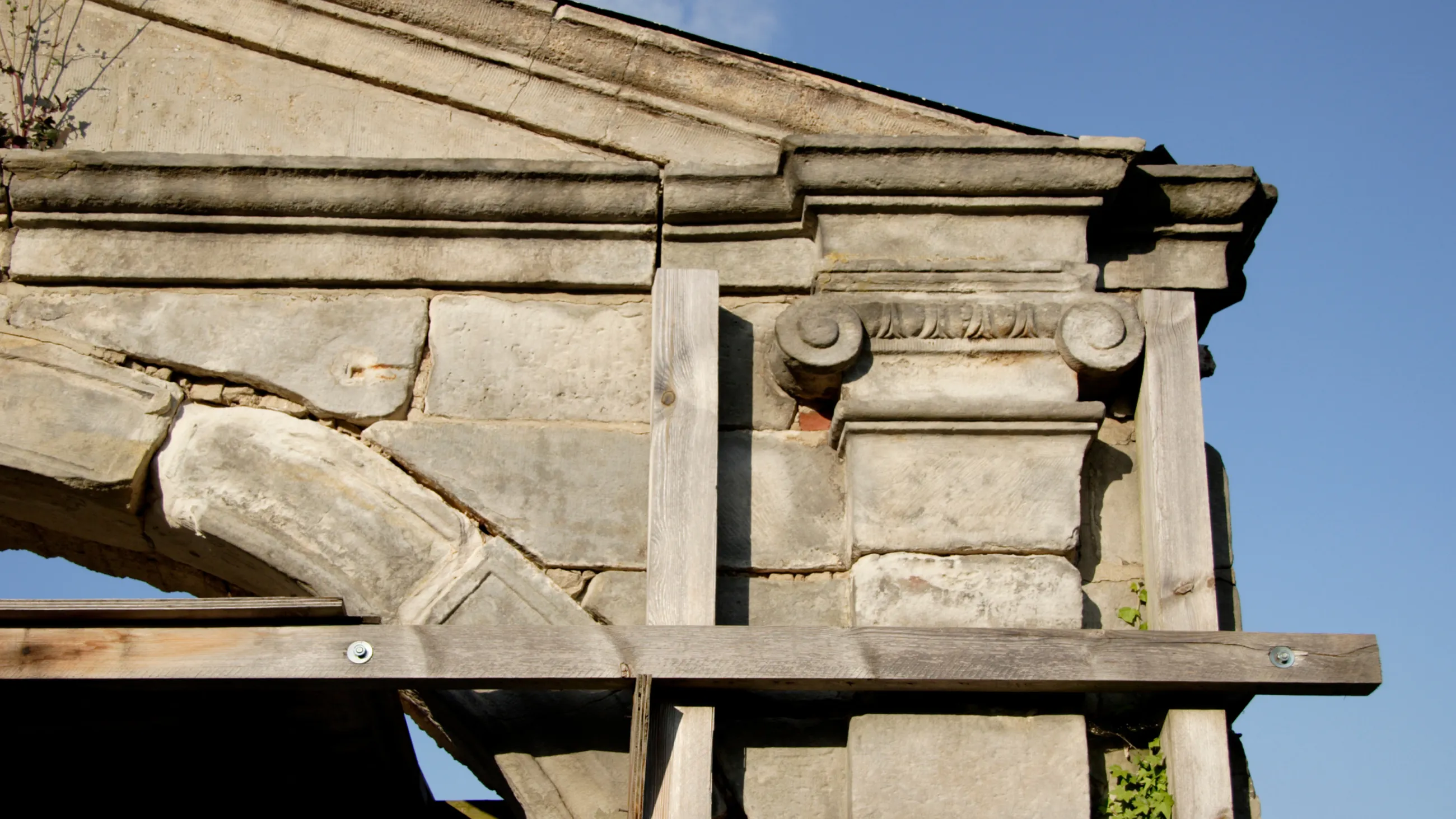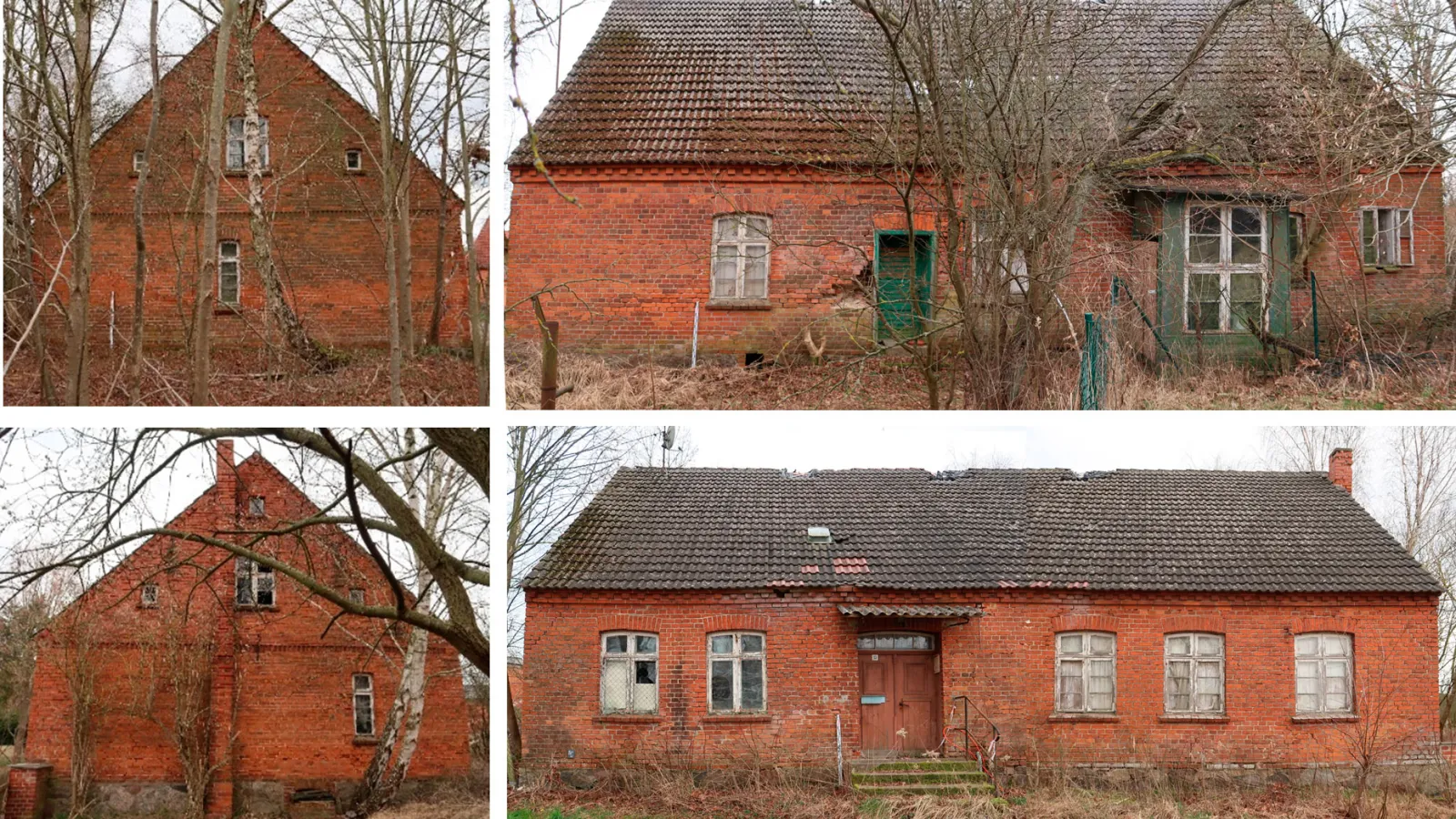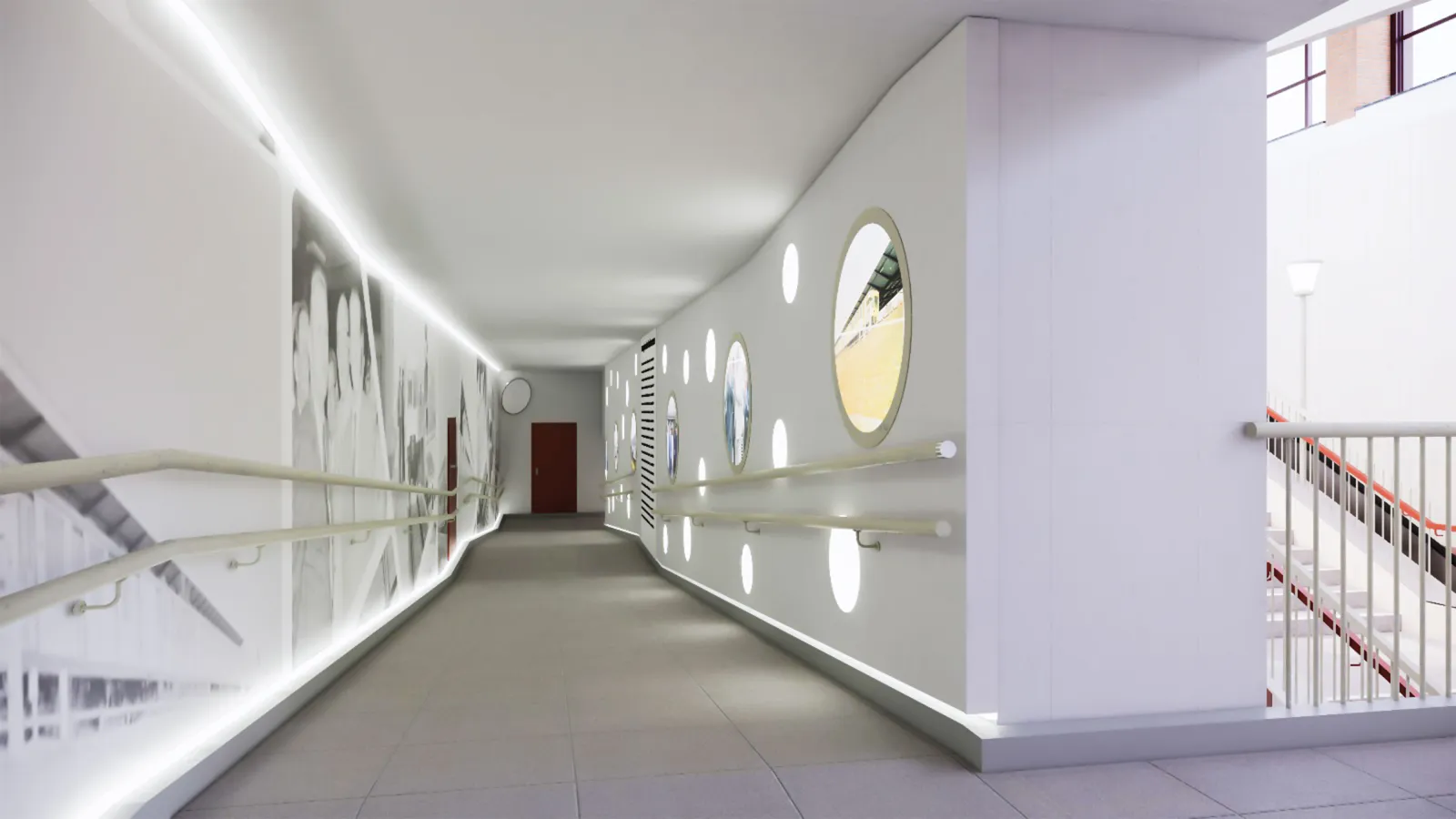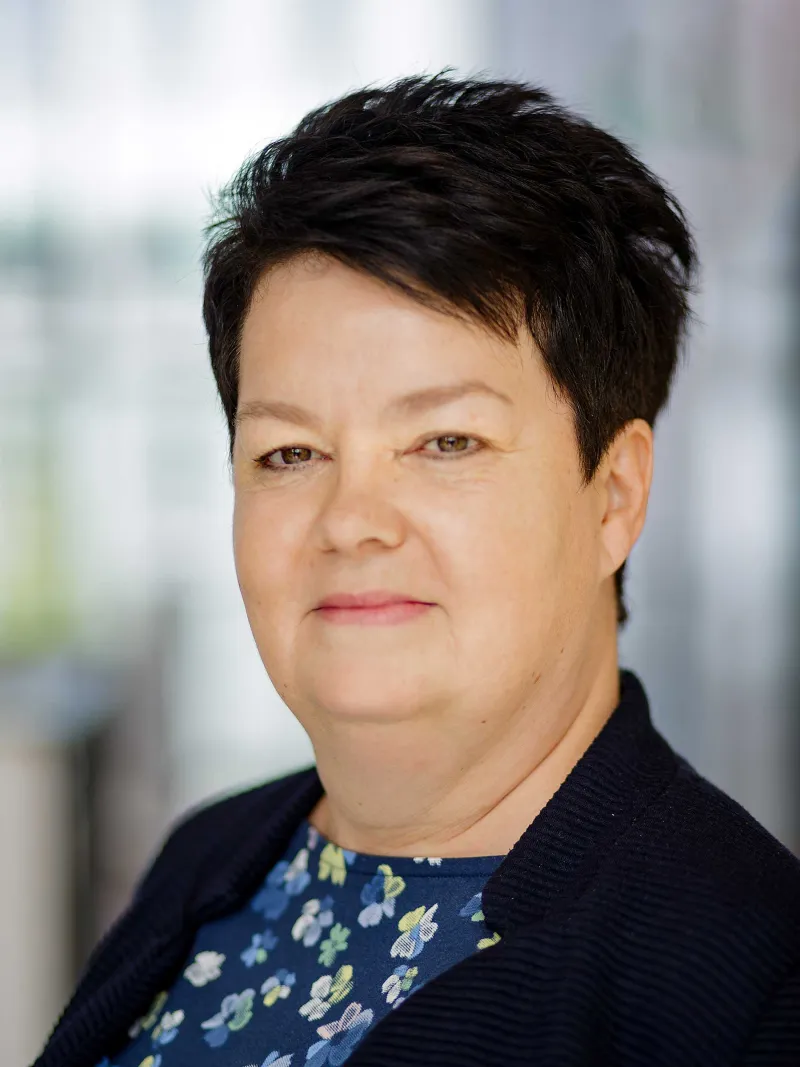Construction Work on Existing Buildings currently accounts for about half of the total construction volume in our society - and the trend is rising. The demand for experts in the fields of building preservation, renovation and restoration is therefore constantly increasing.
The concept for the Master's program in Building Conservation and Construction Work on Existing Buildings is conceptually a consecutive Master's program for already trained civil engineers, architects and related professionals.
Building Conservation and Construction Work on Existing Buildings (MEng)
Full time: 3 or 4 semesters
Part time: 6 or 8 semesters
15/12 – 15/01 (Track 3)
15/06 – 15/07 (Track 4)
90 ECTS credits (Track 3*)
120 ECTS credits (Track 4*)
The Study
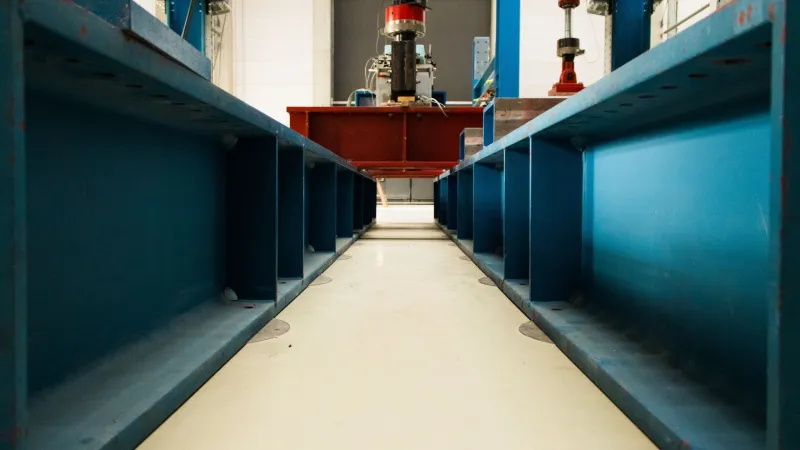
Responsible handling of existing building fabric
The degree program in Building Conservation and Construction Work on Existing Buildings provides you with knowledge of historical building structures and materials and focuses in particular on the technical aspects of building conservation. You will work in the context of building preservation: the recording, recognition, preservation and upgrading of buildings. The master's degree will sensitize you to the responsible treatment of existing building fabric in the area of tension between the objectives of monument preservation and modern requirements of use. The study structure and project work with mixed teams of civil engineers and architects promote the teamwork and communication skills necessary for these tasks. The objects of study are buildings, engineering structures and technical installations – mainly from the period from around 1800 to the present day, but also medieval buildings. The technical area is supplemented by topics from the fields of economics and law as well as history and preservation of historical monuments.
Concept
Educational goals
The concept of the degree program is based on the defined educational objectives, which require interdisciplinarity and practical relevance. It includes the teaching of specialized knowledge of different areas of building in existing structures and methodological as well as generic competences.
Profile
In recent years, the program has continuously changed its profile from "research-oriented" to "application-oriented" by strengthening the practical relevance in most modules. The majority of the master's theses chosen so far can also be described as applied research with a practical orientation.
Studyability
The structure of the degree program and the study structure proved to be reasonable. It was shown that the full-time study program can be studied in three semesters. But the flexibility also allows a reasonable course of study to be extended over a four- or more-semester period of study if part-time study is pursued. Many of the students choose this form because there is a great interest in working while studying, sometimes in their own engineering offices. Many of the students also have to take care of family and children and reconcile this with the demands of everyday study.
Specialists from the practice
The teaching, especially in the elective subjects, is supported not only by the professors but also by highly qualified specialists from practice, who often also help to supervise the students as second examiners for the master's theses.
Expertise
In particular, the broad range of electives to be completed according to subject groups as well as the experimental courses in the department's laboratories provide students with excellent, broad scientific and practical expertise. The specialization deliberately allows for individuality in addition to generalist compulsory subjects. Not only the master's thesis, but also course work can be chosen from the students' own professional environment, thus linking practical requirements with theoretical knowledge and practical procedures.
Practical projects
The mandatory projects have a high value in the study program. They are directly related to practice. Due to the nature of the event, the ability to organize and work in a team, to independently organize work, to apply a wide variety of methods, to work scientifically and to document, to speak and to present is particularly promoted. When discussing the project presentations, a stimulating feedback culture is created. In the P1 project, the relocation from the daily work routine at the university to an unfamiliar environment also strengthens social interaction and the ability to deal with conflict. It became apparent that the students' enjoyment of their work and their motivation are particularly high in the projects.
Key competence
The degree program strengthens and builds up the key competencies of the students, on the one hand through the structure of the study program itself, through the anchoring of additional competencies in individual subjects. Certificates of achievement in the form of presentations, project work with mixed teams of civil engineers and architects as well as men and women particularly promote independent action as well as teamwork and communication and presentation skills. In addition to teaching technical skills, the teaching staff increasingly recognizes its task in strengthening the key competencies of the students and is aware of its role model function in questions of teamwork and, above all, in the willingness to network.
Interdisciplinarity
The Master's program in Building Conservation and Construction Work on Existing Buildings does not turn architects into civil engineers or vice versa. However, due to its interdisciplinary approach, the program contributes significantly to a better understanding and cooperation between civil engineers and architects. Accordingly, the master's theses can have a different focus on more engineering calculation or on more design and planning for civil engineers or architects.
Is this course of study a good fit for you?
As a graduate, you will be able to structure, plan, coordinate, manage and implement conversion and reuse projects in a management position. In the degree program Building Conservation and Construction Work on Existing Buildings you will receive training as a generalist with the ability to communicate, with special and methodological knowledge for questions of building maintenance at the state of the art in the field of building maintenance and construction in existing contexts. The ability to work scientifically is just as much a part of the program as the ability to work in an interdisciplinary manner and to lead interdisciplinary teams, as well as the opportunity for personal development.
Degree Program Flyer & FAQ
- Flyer Studiengang Bauerhaltung und Bauen im Bestand (M.Eng.) (PDF, 1.32 MB)
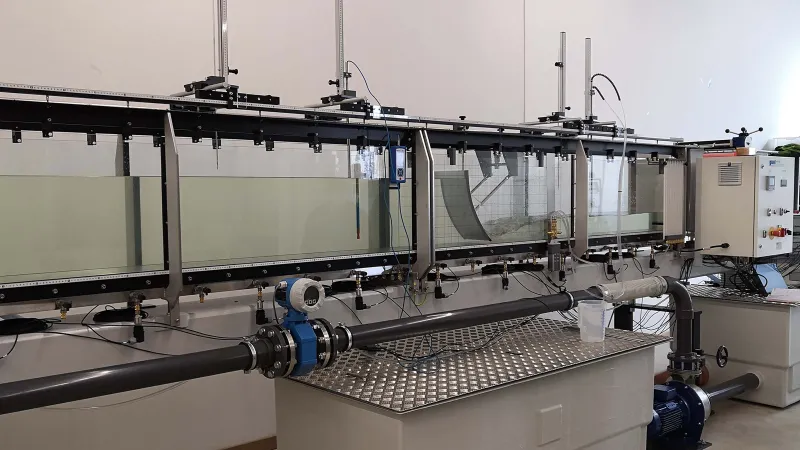
Laboratories & Workshops of the Civil Engineering Department
Working in the laboratories of the Civil Engineering Department is an integral part of the master's program. Our courses are vividly supplemented with practical laboratory exercises. The laboratories can also be used for final or research projects. The conservation and restoration workshops are also of interest to students of the Building Conservation and Construction Work on Existing Buildings program.
Contact
The colleagues at the Advice and Guidance Service for Students provide prospective students, new students, parents, teachers and students with information on all general questions concerning studying. If you have specific questions or concerns regarding the Master's programme in Building Conservation and Construction Work on Existing Buildings, please contact the programme specific advice and guidance.
Programme specific advice and guidance
These degree programs might also interest you
More courses| Department | Degree programme | Teaching language | Start of study | Application deadline |
|---|---|---|---|---|
| |
Building Conservation and Construction Work on Existing Buildings (MEng) | German | Summer semester, Winter semester | 15/12 – 15/01 (Track 3) |
| |
Ing•Bau: Preservation and Construction Work in Structural Engineering (MSc) | German | Summer semester, Winter semester | 15/12 – 15/02 and 15/05 – 15/07 (restricted admission) |
Note
* Only students for study track 3 are admitted in the summer semester.
Career Prospects
Career Prospects
The need for experts in existing buildings is growing more and more and enables graduates of the master's program in Building Conservation and Construction Work on Existing Buildings to pursue practical or scientific activities. Due to its interdisciplinary approach, the program contributes significantly to a better understanding and cooperation between civil engineers and architects. The interdisciplinary orientation qualifies you for management tasks or coordination work as well as for higher service. Setting up a business or freelancing is also a conceivable option with your knowledge.
Possible areas of application
- Management positions in construction companies
- Management positions in building authorities
- Scientific work in applied research
- Freelance consultant
- Doctorate
These degree programs might also interest you
More courses| Department | Degree programme | Teaching language | Start of study | Application deadline |
|---|---|---|---|---|
| |
Building Conservation and Construction Work on Existing Buildings (MEng) | German | Summer semester, Winter semester | 15/12 – 15/01 (Track 3) |
| |
Ing•Bau: Preservation and Construction Work in Structural Engineering (MSc) | German | Summer semester, Winter semester | 15/12 – 15/02 and 15/05 – 15/07 (restricted admission) |
Study Contents
Study program - Study tracks
In order to enable individual study models, the master's program in Building Maintenance and Construction in Existing Buildings offers two different study tracks: Study Track 3 and Study Track 4.
Study track Bau3
Admission requirements: A first professionally qualifying university degree in accordance with § 10 (5) sentence 1 BbgHG with 210 ECTS credits in a relevant subject area or, if studies have not yet been completed, an application for admission in accordance with § 10 (6) BbgHG. German language skills at C1 level are required. Admission only for the summer semester.
Study track Bau4
Admission requirements: A first professionally qualifying university degree in accordance with § 10 (5) sentence 1 BbgHG with 180 ECTS credits in a relevant subject area or, if studies have not yet been completed, an application for admission in accordance with § 10 (6) BbgHG. German language skills at C1 level are required. Admission only for the winter semester.
Duration and start of studies
Full-time or part-time: The master's program can be completed on a full-time basis (30 ECTS per semester) or part-time (15 ECTS per semester) and concludes with a master's thesis. Both study formats offer the opportunity to study abroad.
Standard period of study: For the Bau3 study track, the standard period of study is 3 semesters for full-time study and 6 semesters for part-time study; for the Bau4 study track, it is 4 semesters for full-time study and 8 semesters for part-time study.
Start of studies: The Bau3 study track starts in the summer semester; the Bau4 study track starts in the winter semester.
Study Contents
Individual support: During your studies, you will receive individual support—whether you need help choosing elective modules or writing your master's thesis. In addition to professors, highly qualified specialists from the field contribute to teaching, particularly in the compulsory elective subjects.
Documentation and detailed information: In the currently valid module handbooks, study and examination regulations, and statutes, students will find module overviews, detailed module descriptions, and the study plan, as well as the statutes for the selection process.
Study Structure
The master's program is divided into a broad compulsory section, a compulsory elective section, and a free elective section.
Compulsory portion - Modules M.Bau 1 to M.Bau 8 and Modules A-C
In the compulsory modules, students acquire the basic knowledge necessary for in-depth study in the field of building preservation and planning in existing buildings. The courses mainly take the form of lectures and project work, supplemented by seminars, excursions, exercises, and laboratory work.
Modules M.Bau 1 to M.Bau 8 are compulsory for both tracks. Modules M.Bau A, M.Bau B, and M.Bau C are additional compulsory modules for the Bau4 study track in order to achieve the remaining 30 ECTS required for the master's degree.
Elective subject – M.Bau 9 to M.Bau 12
In the elective subjects, students have the opportunity to deepen their specialist knowledge in freely chosen subject areas on the one hand, and to acquire basic knowledge and insights into related subject areas and general skills on the other. Elective subjects are usually offered in the form of lectures, integrated courses, or seminars.
Free electives—M.Bau 13 and M.Bau 14
The modules in the free elective area offer students the opportunity to focus on areas of their own choosing. They can study modules from the field of civil engineering or architecture in greater depth, particularly elective modules from the program (especially M.Bau 13 Individualized Study I, M.Bau 14 Individualized Study II). Interdisciplinary modules from the Potsdam University of Applied Sciences (especially FLEX – Free Elective Area) or modules from other universities in Germany and abroad can also be selected here.
Master theses
The program advisors and professors involved in the program support students in choosing suitable topics, establishing contact with potential cooperation partners, and with all practical or legal questions.
Master theses
More projectsRenovation and conversion concept for a listed residential and commercial building
This thesis deals with a listed ensemble of residential and stable buildings located in the municipality of Wokuhl-Dabelow, Mecklenburg-Western Pomerania. The buildings are initially inconspicuous, but represent an important testimony to rural regional building culture.
Spaces of Fear in Underground Stations: Architectural Solutions using the Example of Elsterwerdaer Platz along the U5 Line, taking into Account the Protection of Historical Monuments
Underground stations are often perceived as spaces of fear, with some being more affected than others. The central question of this thesis is how spaces of fear arise in underground stations and how these can be appropriately counteracted in terms of architecture and heritage conservation. The case study of the Elsterwerdaer Platz underground station is analysed.
Building Law and Planning Guidelines for the Realisation of Cultural Events in Former Agricultural Buildings in Brandenburg
An exemplary analysis based on the change of use of two LPG cowsheds to cultural sites
The structural change in agriculture in Brandenburg has led, among other things, to more and more farms being abandoned or lying fallow for years. At the same time, there is a significant lack of cultural offerings in rural areas. The strengthening of cultural offerings is favoured at both municipal and federal…
The Indoor Riding Hall in Bergpark Wilhelmshöhe
Draft of a monument-appropriate restoration strategy
Application & Enrollment
Dates and requirements for your application
The most important deadlines, dates and admission requirements for the Master's programme in Building Conservation and Construction Work on Existing Buildings are summarised here. The next section explains the steps you need to take to ensure a successful application.
Dates
- by the 15th of January: submit online application for Track 3
- by the 15th of July: sSubmit online application for Track 4
Entry requirements
First professionally qualifying university degree (210 ECTS credit points for Track 3, at least 180 ECTS credit points for Track 4) in one of the following fields:
- Civil Engineering
- Architecture
- Conservation and Restauration (in the preservation of historical monuments)
- in any other engineering discipline at the discretion of the admissions commission
How to apply
In the following, we will explain which aspects you should consider from the online application to matriculation (enrolment).
Further information
The following links provide further information for international applicants on the topics of application and enrolment at the University of Applied Sciences Potsdam.
International applicants
Do you want to apply to study for a degree from the first or a higher semester and did you obtain your school leaving certificate and/or university degree abroad? Then you can have your foreign qualifications and achievements recognised and study with us.
Application and matriculation procedure
The Application and Student Service provides information and advice on general questions regarding the application process, admission and enrolment at the University of Applied Sciences Potsdam, applying for a higher semester, but also on topics such as disadvantage compensation, part-time studies, waiting semesters and hardship applications.
Contact & Services
The Advice and Guidance Service for Students provides information and advice on general questions concerning the course of study, as well as topics such as choice of degree programme, application, enrolment and study organisation.
For subject-specific questions regarding module content, credit transfer, examinations or specialisations in the degree programme in Building Conservation and Construction Work on Existing Buildings, the programme specific advice and guidance is the right point of contact.
Programme specific advice and guidance
Study and Examination Service
Study Info Service
studien-info-service@fh-potsdam.de
bewerbungs-service@fh-potsdam.de
campuskarte@fh-potsdam.de
Study Service
studien-service@fh-potsdam.de
Exam Service
pruefungs-service@fh-potsdam.de
Family Affairs Officer
Office hours
Tue and Thu 9.30 am – 1.30 pm
Accessibility and Inclusion Officer
Office hours
Monday and by appointment
